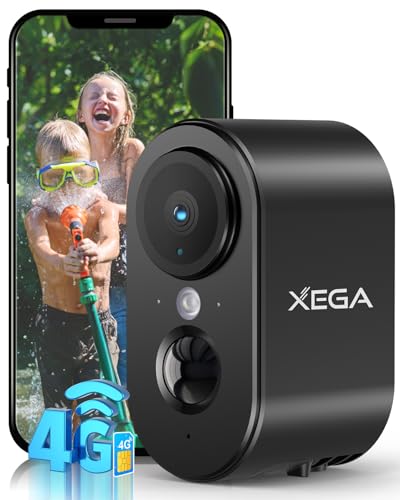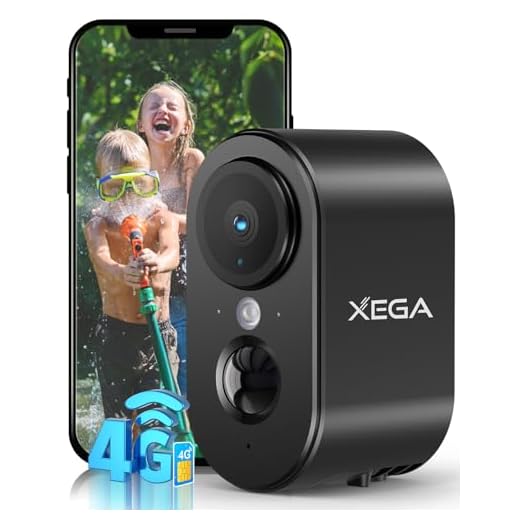


Security camera systems are an essential component of modern surveillance and monitoring practices. They provide valuable insight into activities and events in both residential and commercial settings. However, one common question that arises is: how long do security camera systems last?
The lifespan of a security camera system depends on various factors, including the quality of the equipment, maintenance practices, and environmental conditions. High-quality cameras and recording devices can last anywhere from 5 to 10 years or even longer with proper care and maintenance.
Regular maintenance and upgrades can help extend the lifespan of security camera systems. It is essential to clean and inspect cameras regularly, replace any faulty components, and keep the software up to date to ensure optimal performance and longevity.
How Long Security Camera Systems Last: A Comprehensive Guide
Security camera systems are essential for protecting homes, businesses, and public spaces. One common question that arises is how long these systems last before needing replacement or upgrades. The lifespan of a security camera system can vary depending on several factors.
Factors Impacting Lifespan:
- Quality of Components: High-quality cameras and recording devices tend to last longer than cheaper, low-quality options.
- Environmental Conditions: Exposure to extreme temperatures, humidity, or other harsh conditions can shorten the lifespan of security cameras.
- Maintenance and Care: Regular maintenance and proper care can extend the lifespan of security camera systems.
On average, a well-maintained security camera system can last between 5 to 10 years. However, some components may need replacement or upgrades before the entire system reaches the end of its lifespan. It’s recommended to periodically assess the condition of your security camera system and make necessary adjustments to ensure optimal performance and longevity.
Factors Affecting the Lifespan of Security Camera Systems
Several factors can influence the lifespan of security camera systems. Understanding these factors can help you make informed decisions when choosing and maintaining your security cameras.
| Factors | Description |
|---|---|
| Quality of Components | The quality of the camera, lenses, sensors, and other components can affect the longevity of the system. Higher-quality components are likely to last longer and provide better performance. |
| Installation | Proper installation is crucial for the longevity of security cameras. Poor installation can lead to problems such as water damage, exposure to extreme temperatures, and physical damage. |
| Maintenance | Regular maintenance, including cleaning, adjusting, and updating firmware, can extend the lifespan of security camera systems. Neglecting maintenance can lead to malfunctions and premature failure. |
| Environmental Factors | Environmental conditions such as humidity, temperature, and exposure to sunlight can impact the lifespan of security cameras. Cameras designed for outdoor use are more likely to withstand harsh environments. |
| Usage | The frequency of use and the amount of data processed by the system can affect its lifespan. Cameras that are constantly recording or monitoring high-traffic areas may wear out faster than those used sparingly. |
Importance of Regular Maintenance for Longevity
Regular maintenance is crucial for ensuring the longevity of your security camera system. By conducting routine checks and upkeep, you can prevent potential issues that may arise over time. Here are some reasons why regular maintenance is important:
- Optimal Performance: Regular maintenance helps keep your security cameras functioning at their best, ensuring that they capture clear and crisp footage when needed.
- Preventative Measures: By identifying and addressing any issues early on, you can prevent major malfunctions that could lead to system failure.
- Extended Lifespan: Proper maintenance can extend the lifespan of your security camera system, saving you money in the long run by avoiding premature replacements.
- Security: A well-maintained system is more reliable, providing continuous security coverage without interruptions due to technical problems.
- Cost-Effectiveness: Investing in regular maintenance is more cost-effective than dealing with costly repairs or replacements that could have been prevented.
Overall, regular maintenance is essential for maximizing the lifespan and performance of your security camera system, ensuring that it remains an effective tool for safeguarding your property and assets.
Expected Lifespan of Different Types of Security Cameras
Security cameras are an essential component of any surveillance system, providing round-the-clock monitoring and recording of activities. The lifespan of a security camera can vary depending on the type and quality of the camera. Here is a breakdown of the expected lifespan of different types of security cameras:
- Analog CCTV Cameras: Analog CCTV cameras typically last between 5 to 10 years. They are durable and reliable, making them a popular choice for many businesses and homeowners.
- IP Cameras: IP cameras are more advanced and have a longer lifespan compared to analog CCTV cameras. On average, IP cameras can last between 7 to 15 years. They offer higher resolution and more features, making them a preferred choice for many modern surveillance systems.
- Wireless Cameras: Wireless security cameras are convenient and easy to install, but they may have a shorter lifespan compared to wired cameras. On average, wireless cameras can last between 3 to 7 years, depending on the quality of the components.
- PTZ Cameras: PTZ (Pan-Tilt-Zoom) cameras are versatile and offer greater flexibility in monitoring. These cameras can last between 5 to 10 years, depending on usage and maintenance.
- Dome Cameras: Dome cameras are popular for their discreet design and vandal-resistant features. These cameras can last between 5 to 10 years, making them a reliable choice for indoor and outdoor surveillance.
It’s important to note that the lifespan of a security camera can be influenced by factors such as environmental conditions, maintenance, and usage. Regular maintenance and proper installation can help extend the lifespan of security cameras and ensure optimal performance.
Signs That Indicate Your Security Camera System Needs Replacement
Over time, security camera systems may start showing signs of wear and tear that indicate they need replacement. Here are some common signs to look out for:
1. Poor Video Quality
If you notice that the video quality of your security camera footage has significantly decreased, it may be time to replace your system. Blurry or pixelated images can hinder the effectiveness of your surveillance system.
2. Malfunctioning Cameras
Cameras that constantly freeze, lag, or stop working altogether are clear indicators that your security camera system is failing. It’s important to address these issues promptly to ensure continuous monitoring.
- 3. Outdated Technology
- If your security camera system uses outdated technology that no longer meets your security needs, it’s time for an upgrade. Newer systems offer advanced features and better performance.
Keep an eye out for these signs to determine when it’s time to replace your security camera system and maintain optimal security for your property.
Tips to Extend the Lifespan of Your Security Camera System
1. Regular Maintenance: Ensure to perform regular maintenance checks on your security camera system. Clean the lenses, check for loose connections, and replace any worn-out parts.
2. Proper Installation: Make sure your security cameras are installed correctly by professionals to minimize wear and tear from improper handling.
3. Protect from Harsh Weather: Install your cameras in weatherproof housings to protect them from rain, snow, and extreme temperatures.
4. Power Surge Protection: Use surge protectors to prevent power surges that can damage your security camera system.
5. Update Firmware: Keep your camera’s firmware up to date to ensure optimal performance and security.
6. Secure Network: Ensure your security camera system is connected to a secure network to prevent unauthorized access and potential hacks.
7. Monitor Storage Space: Regularly check the storage space of your cameras to avoid overwriting important footage.
8. Monitor Camera Positioning: Regularly check and adjust the positioning of your cameras to maintain optimal coverage and reduce strain on moving parts.
Common Issues That Can Impact the Lifespan of Security Camera Systems
While security camera systems can last for many years, there are several common issues that can impact their lifespan. It is important to be aware of these factors to ensure your security system remains effective and reliable:
1. Environmental Conditions: Extreme weather conditions such as heat, cold, rain, or humidity can damage security cameras over time. It is essential to install cameras in appropriate weatherproof housings and regularly maintain them to protect against environmental damage.
2. Power Surges: Power surges can occur due to lightning strikes or electrical issues, leading to damage to the camera’s internal components. Using surge protectors and quality power supplies can help prevent this issue.
3. Dust and Debris: Accumulation of dust and debris on camera lenses can affect image quality and performance. Regularly cleaning the cameras and ensuring proper ventilation can help extend their lifespan.
4. Wiring Issues: Faulty wiring or improper installation can cause connectivity problems and potential damage to the cameras. It is crucial to hire professional installers and periodically inspect the wiring for any signs of wear or damage.
5. Software Updates: Outdated software can lead to security vulnerabilities and compatibility issues. Regularly updating the firmware and software of security cameras can help improve performance and extend their lifespan.
By addressing these common issues and implementing proper maintenance practices, you can ensure the longevity and effectiveness of your security camera system.
Choosing High-Quality Security Camera Systems for Longevity
When investing in a security camera system, it is important to choose high-quality equipment that will last for an extended period of time. Here are some factors to consider when selecting security camera systems for longevity:
1. Resolution and Image Quality
Opt for security cameras with high resolution and excellent image quality. This will ensure that the footage captured is clear and detailed, making it easier to identify individuals and events. High-resolution cameras are also less likely to deteriorate over time.
2. Durability and Weatherproofing
Choose security cameras that are built to withstand various weather conditions and environmental factors. Look for cameras that are weatherproof and designed to resist dust, moisture, and extreme temperatures. This will help prolong the lifespan of the cameras and ensure they continue to function effectively in all conditions.
By considering factors such as resolution, image quality, durability, and weatherproofing, you can select high-quality security camera systems that are built to last and provide reliable surveillance for years to come.







